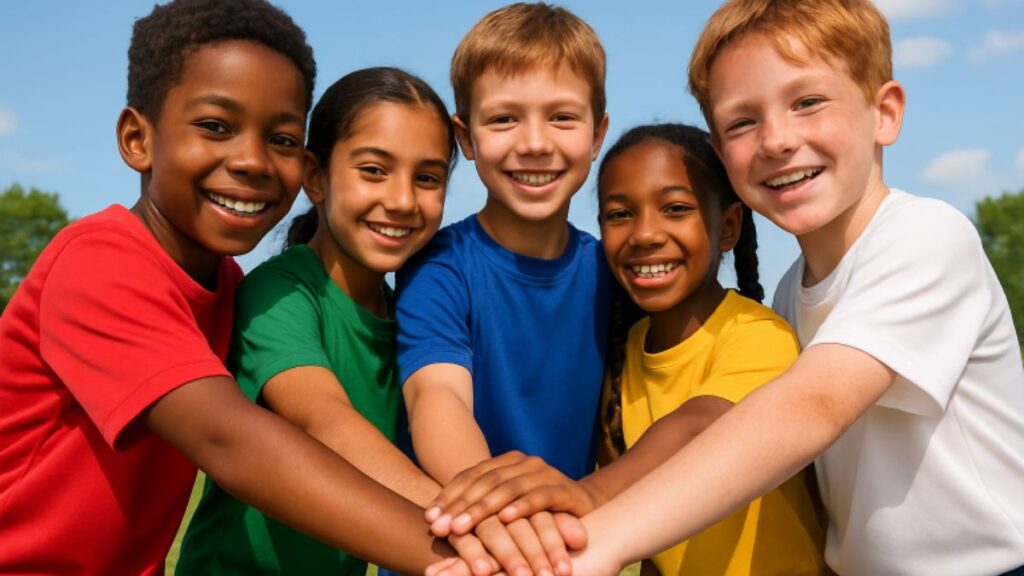Youth sports offer more than recreational benefits—they are an essential cornerstone in developing crucial life skills in children and adolescents. For parents and coaches searching for the right opportunities for their children, basketball coaching camps provide an ideal environment where young athletes learn invaluable lessons that extend far beyond the basketball court. In addition to promoting fitness and athletic achievement, these camps teach qualities like resilience, discipline, and effective teamwork—traits that are indispensable later in life.
Participation in youth sports helps children grow by equipping them with practical tools to navigate challenges, communicate effectively, and lead with confidence. These experiences form the bedrock of their character, ensuring they are well-prepared for academics, relationships, and future professional endeavors.
Discipline and Time Management
Being part of a youth sports program involves a structured routine of practices, games, and events. Young athletes quickly realize the importance of punctuality, preparation, and self-discipline. For instance, balancing homework with demanding practice schedules requires students to hone their time management abilities. Mastering these skills at an early age creates a positive ripple effect—children who routinely plan their days and meet obligations tend to excel in school, manage their responsibilities more effectively, and approach life’s challenges with a sense of order and intent.
Teamwork and Communication
Success in youth sports relies heavily on collaboration. Players are encouraged to listen to one another, offer support, and communicate clearly in high-pressure situations. This regular practice in effective communication and collaboration translates seamlessly to school group projects, future workplaces, and social situations. Young athletes learn to value diverse points of view and develop empathy for their teammates, which fosters strong relationships and the ability to work well in any team setting.
Learning Through Team Dynamics
Working within a team helps children appreciate the unique strengths and skills each teammate brings, which reinforces the idea that shared effort leads to shared success. This understanding cultivates essential soft skills that help young people thrive in group-oriented environments throughout their lives.

Resilience and Perseverance
Encountering setbacks such as losing a big game or dealing with injuries is an inevitable part of sports. These moments, although difficult, are important stepping stones in developing resilience. Athletes are encouraged to reflect, adapt, and keep moving forward, learning that perseverance is essential for success. Through the ups and downs of competition, children learn to process disappointment constructively, maintain a positive outlook, and keep striving—the foundation of a strong, tenacious character.
Leadership and Responsibility
Youth sports provide natural opportunities for children to step into leadership roles, whether as a team captain motivating their peers or as a mentor guiding new players. Taking responsibility for their team and being accountable for their performance instills decision-making skills, accountability, and the importance of leading by example. Developing these leadership qualities early in life empowers children to confidently assume roles of influence in their academic, professional, and community lives.
Mental and Emotional Well-Being
Regular participation in sports helps youth build a healthy mindset. Physical activity leads to the release of endorphins, which can reduce stress and combat anxiety. Achieving personal goals—whether it’s mastering a technique or winning a game—boosts self-esteem, increases confidence, and fosters a positive self-image. Studies also show that children active in sports are more likely to exhibit high levels of ‘grit,’ a vital trait linked to long-term personal and academic success.
Healthy Lifestyle Habits
By establishing exercise routines and emphasizing the importance of nutrition, youth sports lay the groundwork for lifelong healthy habits. Young athletes are more likely to carry regular physical activity and an appreciation for wellness into adulthood. This helps reduce the risk of obesity, diabetes, and other chronic health issues, while also encouraging a balanced lifestyle with positive coping mechanisms.
Social Inclusion and Diversity
Sports provide a natural forum for bringing together children from diverse backgrounds, interests, and cultures. These interactions promote inclusion, foster mutual respect, and broaden perspectives. Whether it’s competing on the same team or against one another, young athletes develop an appreciation for cultural differences and learn to work harmoniously in a diverse world—a skill set increasingly valuable in today’s global society.
Academic and Cognitive Benefits
The skills gained through sports, such as focus, discipline, and goal-setting, directly contribute to academic achievement. Research supports that students who participate in team sports often outperform their peers academically, with improved concentration and enhanced executive functioning. Involvement in structured athletics has been linked with better organization, stronger problem-solving abilities, and higher cognitive function, setting the stage for lifelong learning success.
Participation in youth sports is a powerful catalyst for holistic development. The lessons learned—discipline, resilience, leadership, and empathy—equip children with life skills that last a lifetime, preparing them to flourish in all spheres of life.






